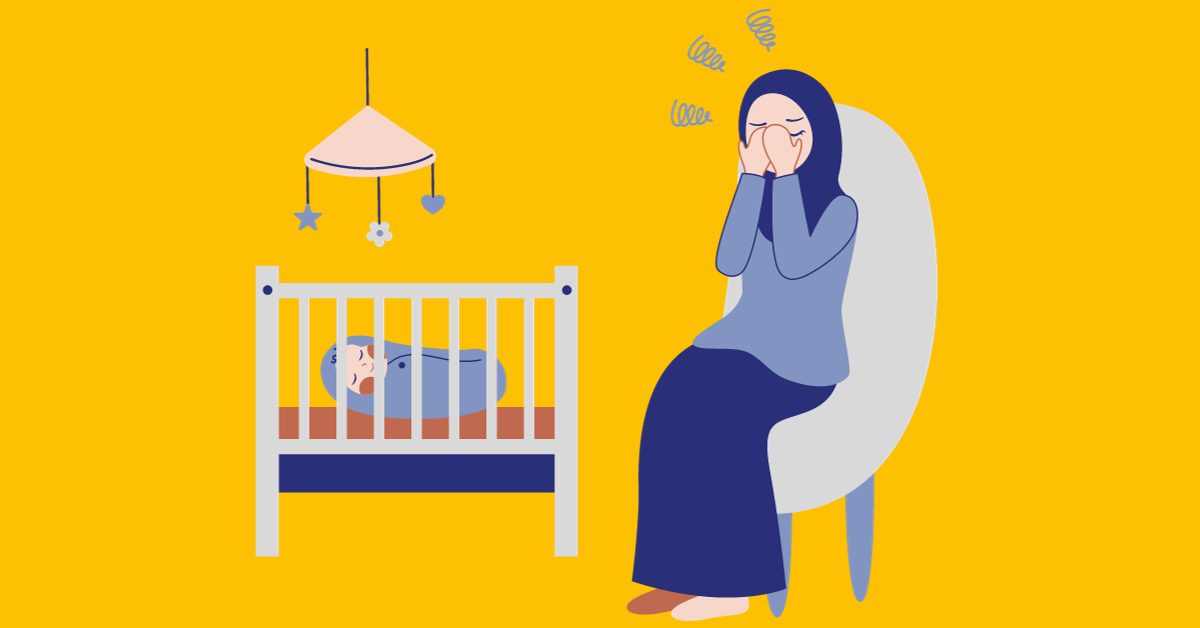Bringing a child into the world is a momentous and joyful occasion, but it can also be a time of immense challenges and emotional upheaval. Postpartum depression, often referred to as PPD, is a condition that affects many new parents, and it can cast a shadow over what should be one of life’s most rewarding experiences. How can you get help for postpartum depression? In this article, we will explore postpartum depression, its causes, symptoms, and most importantly, the help and support available for those who are facing it.
Understanding Postpartum Depression
Postpartum depression (PPD) is a severe form of clinical depression that occurs in the weeks and months after childbirth. It affects not only mothers but can also impact fathers and partners. It’s essential to recognize that PPD is not a sign of weakness or a character flaw; it is a medical condition that can happen to anyone. The exact causes of PPD are not well understood, but it is thought to be influenced by a combination of hormonal, emotional, and environmental factors.
Recognizing the Symptoms

PPD manifests in various ways, making it crucial to be aware of its symptoms to seek help promptly. Some common signs of postpartum depression include:
- Persistent feelings of sadness or emptiness.
- Irritability and mood swings.
- Loss of interest in activities you once enjoyed.
- Changes in appetite or sleep patterns.
- Difficulty bonding with the baby.
- Overwhelming feelings of guilt or worthlessness.
- Lack of energy or motivation.
- Thoughts of harming oneself or the baby.
Seeking Professional Help for Postpartum Depression
If you or someone you know is experiencing these symptoms, it is crucial to seek professional help. Postpartum depression is treatable, and the sooner it’s addressed, the better the outcomes. There are several effective treatments available, including therapy, medication, and support groups.
- Therapy: Talk therapy, such as cognitive-behavioral therapy (CBT) or interpersonal therapy, can help individuals address the emotional challenges they are facing.
- Medication: In some cases, healthcare providers may recommend antidepressant medication to help stabilize mood and alleviate symptoms. Recently, the FDA approved the first oral treatment for PPD.
- Support Groups: Joining a postpartum depression support group can provide a safe space to share experiences and coping strategies with others who are going through similar challenges.
Self-Care Help for Postpartum Depression
In addition to professional help, there are self-care strategies for parents who are burned out and/or dealing with postpartum depression.
- Lean on Your Support System: Rely on friends and family for emotional support, and don’t be afraid to ask for help when needed.
- Prioritize Sleep: Lack of sleep can exacerbate PPD symptoms, so try to rest when the baby sleeps and establish a sleep routine.
- Maintain a Balanced Diet: Eating nutritious meals can positively impact your mood and energy levels. Try meal planning to make balanced eating easier.
- Stay Active: Regular exercise can release endorphins and help improve your mental well-being.
- Practice Mindfulness: Mindfulness and relaxation techniques, such as meditation and deep breathing, can reduce anxiety and stress.
Balancing Work and Parenthood
For working parents, managing postpartum depression can be especially challenging. It’s essential to communicate openly with your employer about your condition and explore the following strategies:
- Flexible Work Arrangements: If possible, request flexible hours or remote work to better accommodate your needs.
- Set Realistic Goals: Prioritize tasks and delegate when necessary to reduce stress.
- Employee Assistance Programs (EAPs): Many companies offer EAPs that provide access to counseling services and support for mental health issues.
Postpartum depression is a challenging and often isolating condition, but it is essential to remember that help is available. You are not alone in this journey. By understanding the symptoms, seeking professional help, and practicing self-care, you can take steps toward healing and creating a brighter, more fulfilling experience for yourself and your family.
If you or someone you know is struggling with postpartum depression, don’t hesitate to reach out to a healthcare professional or support group. There is hope, and there is help for postpartum depression. You deserve to find the balance between parenthood and self-care, and to experience the joy that this journey can bring.

